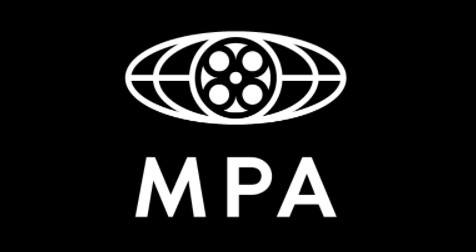house > against piracy >
Charles Rifkin, Chairman and CEO of MPA at CineEurope, said piracy remains the biggest threat to the audiovisual community. The organization, which is the driving force behind the ACE anti-piracy coalition, has had many successes in combating piracy and has been praised for the efforts of European law enforcement. Website blocking, which is common in many European countries, has also made a difference.
 Over the past two decades, Internet piracy has proven to be a major challenge for the entertainment industries.
Over the past two decades, Internet piracy has proven to be a major challenge for the entertainment industries.
It is a global issue that is difficult to contain, but many anti-piracy groups are doing their best to combat it.
Alliance for Creativity and Entertainment (witty) was at the forefront of this fight. The Alliance is led by the Motion Picture Association (MPA), which represents major Hollywood studios and Netflix.
Hacking = the single biggest threat
in a letter in Europe cinema In Barcelona this week, MPA CEO and President Charles Rifkin told the audience that piracy remains a major threat to the film industry.
“[Piracy] Is the biggest threat to the global audiovisual community. It harms domestic and foreign films and companies. It threatens jobs. It undermines investment. Reduces tax contributions to governments. “It stifles the very creativity that is the lifeblood of our industry,” Rifkin said.
While the threat of piracy has not disappeared over the past decade, rights holders have significantly stepped up their efforts to combat the problem. The ACE Alliance played an important role in this.
Anti-piracy successes
In recent years, ACE has been involved in several high-profile anti-piracy initiatives around the world, and Rifkin noted that law enforcement in Europe has been an important partner.
“We’ve been very successful everywhere,” Rifkin said, recalling several success stories, including the shutdown of hacking app Mobdro, in which the Spanish police played a central role.
Spanish law enforcement has also been instrumental in breaking down many illegal IPTV services. The MPA chief said he would personally thank the police for their efforts today.
“I will be going to Madrid to meet with the leadership of the Spanish National Police to thank them for their outstanding cooperation and teamwork in this crucial effort,” Rifkin added.
Update: The Spanish National Police is also happy with the MPA’s efforts. After this article was published the police granted MPA with Merit Cross with Distinction for its anti-piracy efforts.
Website blocking
There are other “useful” developments in Europe as well, from the point of view of rights holders. This includes blocking hacker site. Countries including Spain, Italy, France, Denmark, Greece and the Netherlands have all measures in place to prevent access to offending websites.
“Europe also leads the world in blocking illegal websites – which makes a huge difference,” Rifkin told the audience.
It’s no secret that the MPA is also pushing for similar forces in the United States, but, so far, little progress has been made on this front.
Addressing piracy of video recordings
CineEurope is the trade fair for the film industry. According to Rivkin, movie theaters can help combat online piracy, and they have helped by tracking down and reporting people who have illegally shot ‘camcorder’ movies.
These anti-video recording measures help reduce piracy and some successes have been recorded recently, also in Spain.
“Our work together, together with the Spanish National Police, led to the successful arrest of individuals in Madrid and Pamplona who were illegally filming premieres and uploading them to specialized and illegal websites,” Rifkin noted.
The head of the MPA is positive about cooperation in the fight against piracy in Europe. Recently, this led to the closure of Iconic Streams and Filelinked in Germany. These enforcement actions ultimately benefit theater owners, too.
There is no doubt that this anti-piracy sentiment will spread far and wide among the CineEurope audience. After all, hacking is a threat to everyone involved.
Threat from within?
Recently, there has been some uproar within the film industry as well. Many theater owners aren’t happy that some movies are premiering on streaming services and at the box office simultaneously.
Rifkin acknowledged the huge and uncertain concerns and challenges that lie ahead, adding that he can’t predict the future. However, he believes that the cinema experience in cinema cannot be easily replaced.
“As I said before, we live in a golden age of content – for all of us to enjoy – wherever we choose to find it. But there is no substitute for going to the movies.”
These comments apply to potential competition between legal broadcasting and the box office, but perhaps that could be expanded to piracy as well. If legal streaming isn’t a substitute for the cinema experience, we suspect piracy is. But that’s another discussion.